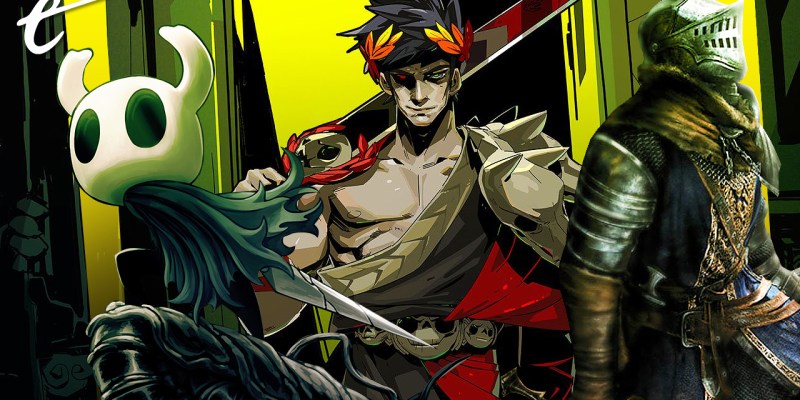A video game’s soundtrack is a crucial component of its identity and one of its most valuable tools for creating impactful, memorable moments. Whether it’s used to augment a location’s atmosphere, accentuate a boss battle, introduce a character, or infuse emotion into a cutscene, a poignant piece of music will often occupy players’ minds long after they’ve completed the associated game. Here are six of the most heart-stirring, awe-inspiring, and haunting video game music tracks to leave an indelible mark on your psyche (if they haven’t already).
The Most Haunting Video Game Music
“Good Riddance (Eurydice Solo)” from Hades
Composed by Darren Korb, Performed by Ashley Barrett
In Hades, there’s something truly magical about encountering Eurydice for the first time — her chamber is an oasis of calm amidst Asphodel’s blistering chaos, and although the tasty treats she offers Zagreus are certainly welcome, having a moment to rest and listen to her sing is an even greater prize. The lyrics of “Good Riddance” express relief at being freed from earthly burdens, but a C minor key signature gives the song a nostalgic, slightly mournful air. It’s the theme of a character who is resigned to her fate but wants to convince herself that she’s celebrating it, and its beautiful melody will have players battling through the underworld over and over again for another chance to hear it.
“Dirtmouth” from Hollow Knight
Composed by Christopher Larkin
Hollow Knight’s outstanding soundtrack is packed to the brim with haunting songs, but “Dirtmouth” seems most inextricably tied to the player’s overall experience with the game. The dreary town of Dirtmouth is the first major location in the Knight’s journey, and over time, it becomes a place of respite and safety from the perilous ruins of Hallownest that lie below. Its theme gives the impression of pensiveness (piano) tinged with longing (strings) and feels like the color gray expressed in musical form — dismal and muted, but with a certain sense of calmness and coziness about it.
“Gwyn, Lord of Cinder” from Dark Souls
Composed by Motoi Sakuraba
Removed from the context of Dark Souls’ story, the music accompanying the Chosen Undead’s last battle might strike players as an odd choice. “Gwyn, Lord of Cinder” is delicate, melancholy, and played entirely on the piano — in other words, nothing like the grandiose compositions replete with dramatic vocalization that characterize most of the game’s other boss anthems. Given what’s become of Gwyn, though, it makes perfect sense — he is a Hollow (capital H) shell of his former self, clinging to the dying embers of the Age of Fire he sacrificed himself to prolong. His theme is a dissonant duet representing his final, desperate struggle with the Chosen Undead, and as the player prevails and the music ends, it feels less like a triumph and more like the closing act of a tragedy.
“Last Voyage” from Spiritfarer
Composed by Max LL
Spiritfarer is a profoundly bittersweet game about death and learning how to say goodbye, and naturally, some of its most emotional moments occur when Stella escorts her passengers into the afterlife. “Last Voyage,” the track that plays during these scenes, has an almost lullaby-like quality to it — although it’s undeniably heart-wrenching, it also evokes an ambience of gentleness and tranquility. It’s the perfect track to underscore Stella’s tender routine of paddling the rowboat to the Everdoor, listening to her friends’ last words, and sending them off with a warm hug.
“North Coast 500” from Burnhouse Lane
Composed by micAmic
Burnhouse Lane is a horror game with a somewhat somber storyline, but its most memorable track doesn’t seem intended to inspire feelings of fear or sadness. “North Coast 500” might more accurately be described as “wistful,” with the title conjuring a mental image of someone on a scenic car ride, daydreaming while gazing out the window. It has a faster tempo than many of the game’s other standout songs, which adds a dimension of restlessness and anticipation befitting the scene in which it plays: Angie discovers that George has somehow made his way onto the roof and must figure out how to get him down. This initially tense sequence of events has the potential to become a bonding experience for Angie and George and is one of the game’s most charming moments.
“Just Like Sleep” from Hellblade: Senua’s Sacrifice
Performed by Passarella Death Squad
Passarella Death Squad’s “Just Like Sleep” and Senua’s final confrontation with Hela are a match made in heaven and realized in Helheim. Abstract, minimalist lyrics and mesmerizing vocals over a pulsating beat set the stage for a dreamlike yet high-intensity fight in which Senua must reckon with the anguish, pain, terror, and trauma she harbors in her mind. With the addition of such a haunting song, what may have been a brutally repetitive battle is transformed into something chillingly beautiful: a deadly dance in which Senua’s ferocity and vulnerability are both on full display. When “Just Like Sleep” is followed closely by VNV Nation’s “Illusion” to close out the game, it’s an emotional one-two punch that players won’t soon recover from.
Let us know what else you think might rank among the most haunting video game music tracks.
